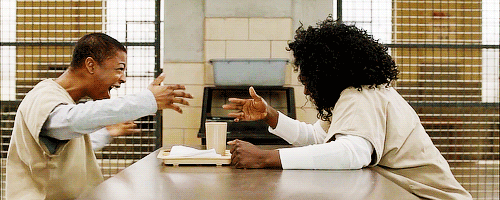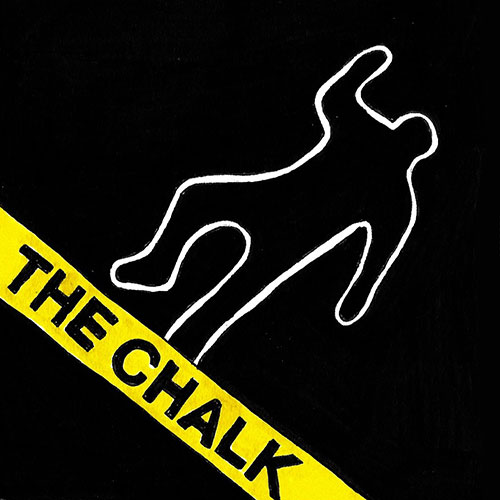Moral Indictment: Tubmans, Police Misconduct & Symbolism
By Marquaysa Battle
Harriet Tubman was one of my mother’s biggest sheroes. It was only right that she passed the love for the Underground Railroad heroine down to me. We both loved watching Cecily Tyson play her in the 70s film “A Woman Called Moses”, but what my mom loved most was taking on the role herself. Because she played Harriet Tubman in a few theatre productions, she always carried her words and story in her spirit. Today she still slips and interchanges “Harriet” with “I” when talking about the freedom fighter.
I loved seeing mom garb herself in what she interpreted as Tubman’s freedom clothes. She wrapped her hair up in a cloth, slid into a homely dress and black trench coat, and then put a plastic gun in a small burlap bag. During the scene when slaves fearfully asked Harriet to take them back to the plantation, mom loved to whip out the gun and deliver her favorite line: “I’ll kill you dead ‘fore I let you go back!” At home, she would laugh after practicing that line and talk about what “a baaad woman that Harriet Tubman was.” Mom would tickle herself with the boldness of Harriet’s take-no-prisoners attitude. It both amused and empowered her to play a woman with such give-no-effs strength. “The reason was because if they go back, the slave master would force them to tell them about the route. But more than that,” my mom said. “She would rather them be dead than to go back to that slavery.”
Mom wanted to pass on the story of the female Moses, because black people—specifically black women— leading each other to freedom is still an ongoing activity. “I’m still telling them to get free or die today,” my mom says. From natural hair tips (hello YouTube!) to hiring each other for freelance work to simply saving a few coupons to give to our home girl at work with less hours and two children—black women do or die for each other like it’s second nature. See the #YouOkSis hashtag to learn how we protect and check in with each other. Catch the encore of “Black Girls Rock to see how we love on and uplift each other fiercely in our personal and professional lives. Search up #BlackGirlMagic on any social media platform if you want to see how black women affirm ourselves daily.

Buzzfeed
It’s clear: We love us some us, and that love seems to grow every day.
What’s not clear is the world’s love for us outside of empty symbolic affirmations that rarely translate into anything tangible.
Harriet Tubman’s face is going to be on my $20 bill, okay. But this world still lacks love for black women who look like Harriet Tubman, evidenced by the nasty comments about her being “too ugly” to be on U.S. currency. To attack the looks of a woman who freed herself from the institution of slavery and then risked her life to free other black people—perhaps the most revolutionary act anyone on any piece of our currency has ever done for black people—is peak misogynoir and says so much about how society still views black women who don’t meet European beauty standards.
It seems America has made a sport out of honoring black people only on a surface level. An example is “Sandra Bland Parkway” in Texas. The new street name gave me no sense of triumph—only more questions. How about Sandra Bland should have been given a ticket for not putting on a left turn signal, and not arrested on that street in the first place? How about we stop racialized police stops instead of naming streets after dead victims of such occurrences after the fact? Why is the state willing to acknowledge injustice with new street signs, but not with indictments? In my humble opinion, to name a street after a woman who died after a jail stay following an unjust arrest is to spit on her legacy. “Sandra Bland Parkway” is not the #JusticeForSandraBland that the people asked for.

Giphy
This week, trials for police officers responsible for the death of Freddie Gray—a man killed due to a severed spine in the back of a police van in Baltimore last April— will begin. The nation may no longer be watching thanks to the media moving on to newer headlines, but this portion of the Freddie Gray story is arguably the most important. As it goes with even Law & Order episodes, the “courtroom scene” is the most climatic. The judge and jury will either take part in setting the new precedence for black victims of police misconduct, or make it so Baltimore’s $6.4 million settlement with Gray’s family remains the only acknowledgement of police misconduct on behalf of local government. Still, even if the Gray family had gotten all of that money in cash Tubmans—it wouldn’t bring Freddie Gray back or prevent the next unarmed black person from meeting their fate at the hands of police.
And consider Dr. King. There’s a Martin Luther King Jr. Blvd in nearly every city. Usually, that boulevard is where an annual MLK Day Parade takes place for the Civil Rights leader’s birthday. Statues and murals of him are erected all over the country, most prominently featured in Washington D.C. and throughout the south. Still, his “dream” of racial and economic equality remains unrealized.
Visual honor doesn’t bring back the dead, improve the justice system or make me feel any freer or safer out in these American streets.
Activist Stokely Carmichael, wrote that “black visibility is not black power.” That haunts me every time our country puts a black legend on a postage stamp or erects a new statue or hands out an honorary street name or even makes headlines with an appeasing settlement. With each new piece of “visibility,” I feel less and less seen. Often, these artifacts are used to reason that we live in “post-racial” America.

Odyssey Online
Never mind that black people are still routinely murdered by police. Never mind that black people with black names are still being passed over for jobs by companies that profess their love for diversity. Never mind that thousands of black women go missing each year, but the main people I see on the news are missing white people. Never mind that I watched Eric Garner practically beg for his life while being choked to death. Never mind that black trans people are assaulted and killed at alarmingly high rates, but get the least press coverage. As a black woman in America, I honestly feel loved more in theory by mainstream society than in reality. Our “post-racial” America is as racist as it’s ever been, and the best this country seems to ever be able to do is to put up some statue and ask black people why we can’t get no satisfaction.
“I am pleased. I couldn’t pick a more worthy black female figure to be on it,” my mom said when I asked her what she felt about Harriet Tubman being on her money. “Still, the way things are right now, that $20 is going to leave my hands as fast as she got there.” She said this with a giggle, but mom’s sentiments reflect her material reality, and may be broadened to grapple with black women and wages overall. How are we supposed to cry jubilee over Harriet Tubman on our paper, while we still only make 63 cents to every white man’s dollar? The more things “change”—the more they stay the same. Instead of the U.S. government putting more of our black heroes on money, how about getting the wage gap together? And if the government really wants to be the Good Samaritan it wants black people to believe it is trying to be?
Let black people see justice in the courts and on our currency.

